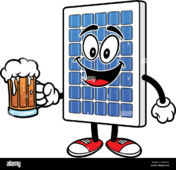thomBangor
New Member
Hi, just wanted to leave some feedback here. You have all provided some great advice and wisdom and I appreciate it.
I have been watching solar for 20 years wondering when is the right time to go.
I believed that now the high price of electricity ($0.30/kwh), low price of panels, reasonable price of batteries, and advancements in inverter/battery electronics and all-weather capability had finally hit the sweet spot.
This forum has convinced me that is not the case.
In my area it seems my options are
1. To execute some sort of agreement with the power company, which would be cost prohibitive and take years in my area.
2. To extend my purchase budget way way up and purchase ~triple the panels and battery capacity that I need, in order that I could safely go completely off-grid without worrying about running short on power.
Neither of these options yield a return on investment that would make solar worthwhile, and that is greatly disappointing to me.
I have been watching solar for 20 years wondering when is the right time to go.
I believed that now the high price of electricity ($0.30/kwh), low price of panels, reasonable price of batteries, and advancements in inverter/battery electronics and all-weather capability had finally hit the sweet spot.
This forum has convinced me that is not the case.
In my area it seems my options are
1. To execute some sort of agreement with the power company, which would be cost prohibitive and take years in my area.
2. To extend my purchase budget way way up and purchase ~triple the panels and battery capacity that I need, in order that I could safely go completely off-grid without worrying about running short on power.
Neither of these options yield a return on investment that would make solar worthwhile, and that is greatly disappointing to me.



